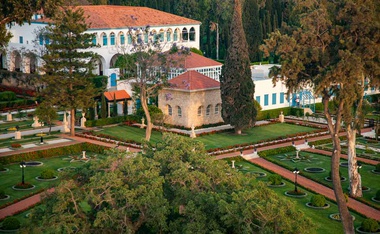Honoring the Birth of Baha’u’llah is an illustrious event that resonates with the core tenets of Baha’i faith, a religion that emphasizes the profound unity of humankind. Each year, on the second day of the month of Mashíyyat, the Baha’is around the globe celebrate the birth of their founder, Baha’u’llah, whose life and teachings have transformed the spiritual landscape of the world. This occasion serves as a beacon, illuminating the path toward communal harmony and spiritual growth.
To fully appreciate the magnificence of this celebration, one must delve into the historical context surrounding Baha’u’llah and the significance of his teachings. Born on November 12, 1817, in Tehran, Persia, Baha’u’llah emerged during a time of social turbulence and religious upheaval. The prevailing atmosphere was one rife with discord and sectarian strife, mirroring a modern-day garden choked with weeds, which desperately yearns for the compassionate gardener to tend it. It is in this environment that Baha’u’llah proclaimed his divine mission, inviting all to engage in the arduous yet rewarding journey of spiritual awakening and communal unity.
The celebration of Baha’u’llah’s birth is not merely a commemoration of his physical existence; it is an exuberant affirmation of the values he espoused. The essence of the celebration can be likened to a symphony, where each note contributes to a larger, harmonious whole. Participants around the world partake in devotional gatherings, where prayers and readings from Baha’u’llah’s writings are shared, akin to the weaving of a vibrant tapestry from diverse yet complementary threads. This communal assembly serves the dual purpose of nourishing the souls of the participants while reinforcing an unwavering commitment to the principles of justice, equality, and love.
Among the numerous ways in which Baha’is honor this special day, one finds a remarkable diversity that reflects the cultural richness of the global community. In countries across continents, from Southeast Asia to North America, local customs fuse seamlessly with the teachings of Baha’u’llah, creating a global mosaic—each piece distinct, yet coalescing into a cohesive whole. Feasts are prepared, symbolizing the abundance of spiritual sustenance that Baha’u’llah offers. The breaking of bread among family and friends is a physical manifestation of the unity that the faith advocates.
Moreover, musical recitals are often an integral part of these celebrations. The melodies and harmonies created resonate with the lofty ideals of the Baha’i faith, encapsulating the transcendent message that Baha’u’llah conveyed. Through song, attendees express their devotion, their gratitude, and the collective aspiration toward spiritual elevation. In this respect, music serves as a powerful metaphor, illustrating how the heartstrings of humanity can be pulled closer together through shared experience and expression.
The occasion is also marked by acts of charity and community service, echoing the Baha’i principle that genuine love manifests itself in concrete actions. Volunteers and community members engage in initiatives that benefit local populations, whether it is providing food for the needy or organizing educational activities for children. These endeavors reinforce the notion that honoring Baha’u’llah’s birth entails the active pursuit of justice and the upliftment of humanity—a call to action that resonates deeply with the foundational ethos of the Baha’i teachings.
As the celebratory activities unfold, it is imperative to reflect on the global implications of Baha’u’llah’s teachings. His admonitions to eschew prejudice and encourage equity transcend geographic and cultural boundaries. In a world where division often overshadows unity, honoring Baha’u’llah’s birth serves as a clarion call for collective action in fostering understanding and respect among different peoples. It is a reminder that, like the myriad colors of the dawn sky, humanity thrives in its diversity, and through unity, the dawn of a new era can emerge.
In essence, the celebration of Baha’u’llah’s birth is a holistic experience that transcends mere festivity; it functions as a transformative encounter with higher ideals. As participants engage in prayers and reflective discussions, they are not only honoring the past but also nurturing a renewed commitment to the future. Such gatherings fortify the bonds of fellowship, allowing attendees to metaphorically intertwine their individual journeys towards a collective destiny, much like the roots of a tree that strengthen its trunk and branches.
The Baha’i perspective posits that humanity stands at a critical juncture, poised between discord and the promise of unity. The celebration of the Birth of Baha’u’llah becomes a microcosm of this broader narrative. It serves not merely as an occasion to remember a historic figure, but as an impetus for transformation, beckoning individuals to push beyond their own limitations and to recognize their profound interconnectedness with others.
In conclusion, as observances ripple across the globe in honor of Baha’u’llah’s birth, they evoke a shared aspiration: the desire for a world defined by love, service, and collaboration. In the intertwining of culture, devotion, and action, the celebration encapsulates the overarching message of the Baha’i faith: that unity is not merely an ideal, but a tangible reality waiting to be realized through collective endeavor. Thus, the day stands as both a celebration and a promise—a promise that if nurtured, the seeds of Baha’u’llah’s teachings will flourish, ultimately leading to a garden of peace and harmony for all humankind.
